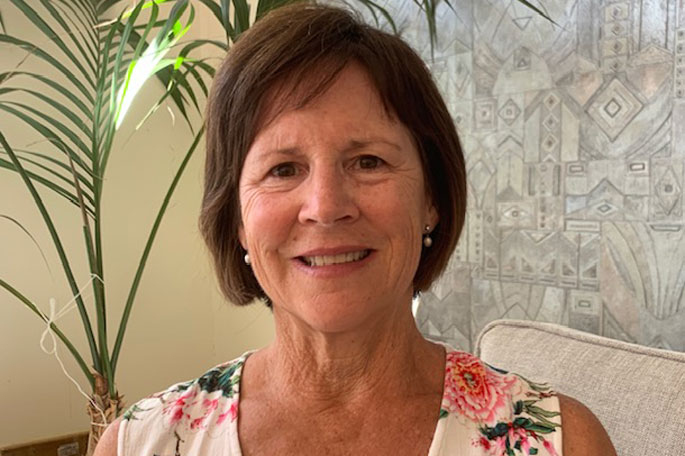Grief is likely to affect every one of us at some point in our lives. From the loss of a loved one to the break-up of a relationship or marriage, grief is a natural response to loss or unwelcome change.
But grief can be difficult to go through alone. Overwhelming feelings of sadness, numbness, and emptiness can leave those experiencing grief unsure if they can cope and worried they will never feel better.
One local charity is supporting hundreds of people experiencing grief across the Western Bay of Plenty, and says it is seeing more complex situations come through its doors caused by the pandemic.
Grief Support Services provide subsidised professional grief and loss counselling and information to vulnerable individuals and families.
The charity works to encourage clients to understand themselves and each other so they may manage the turmoil of grief and loss, adjust to huge changes, and attain their aspirations for their quality of life.
Providing up to six sessions for individuals or family/whanau counselling, child counselling, and counselling for parents of children under six adjusting to loss, Grief Support Services has been supporting our community since 1987.
Grief Support Services service manager Janet Baird says the charity has seen client situations complicated by the Covid-19 environment.
"Grief is not only a response to bereavement but can occur following any loss or unwelcome change such as the break-up of a relationship or marriage, fractured family relationships, financial loss, redundancy, and injury or illness of self or of a friend/family member.
"These situations have become more complex, with some clients becoming quite traumatised due to circumstances caused by Covid-19.
"Many families have been kept apart due to Covid-19 restrictions at times when support for and from one another is crucial.
"People have not been able to be with loved ones during personal difficulties, at the end of life, and others have not been able to attend funerals of loved ones. Lockdowns and isolation periods have put pressure on families, and the impact of this intensifies when one is grieving."
Baird notes that their counsellors provide a safe and confidential space that can be relied upon.
"During these uncertain times, stability is important, and this is something counselling offers.
"Counsellors are aware of other services in the community that may be relevant for the support of clients and will refer if clients have needs outside the scope of the service. For clients who prefer not to be out and about too much, or are isolating, they provide zoom or phone sessions."
Baird says grief counselling supports clients to make healthy choices to cope with life difficulties.
"We know that grief lowers tolerance which can contribute to inflaming already vulnerable situations within families. Grief counselling can lessen the risk of depression and suicidal ideation.
"As people grow their support systems and tools of resilience, they are less likely to turn to drugs, alcohol, self-harm or other unhelpful tools to cope.
"There is a flow-on effect from counselling as our clients become more resilient and return to participating in their families, community and workplace."
Baird notes that there are some misconceptions about how people process grief.
"The most common misconception is about time and how long it takes to process as if there is a rule about this. The expectations that people are put under socially can be quite unrealistic.
"In the context of bereavement, the phrase 'moving on' can be unhelpful. People may prefer to move forward in a new way with the person who has died rather than move on from them. One of the things we do at Grief Support Services is normalise the intensity of grief as this can be quite unexpected."
One client of the charity says the support has enabled them to regain strength.
"Letting things out and sharing my thoughts has given me my strength back to deal with all that life has thrown at me. I am so much stronger now and able to deal with the grief so much better and look forward."
Another client says counselling helped them control their emotions and heal in a positive way.
"I feel whole and like there has been an amazing amount of healing through this journey here. I feel more connected with myself and others. Less aggressive and self-protective too."
Grief Support Services has been supported by TECT with over $260,000 in funding since 2004.
Most recently, a grant of $45,000 was approved towards operational expenses in relation to the delivery of their service, excluding those related to suicide bereavement support which is funded by the DHB.
Baird says TECT's funding plays an integral role in supporting their service and enables them to provide subsidised, by donation, grief and loss counselling to their clients within the Western Bay of Plenty.
"We've seen a growing demand for our service over the years due to population growth, the success of mental health campaigns encouraging people to seek help, and with the ongoing Covid-19 environment.
"We are incredibly grateful that TECT has supported our work along the way, ensuring we can provide subsidised counselling to those experiencing all forms of loss and grief."
Clients are able to self-refer and can phone Grief Support Services on 07 578 4480 or fill out a referral form on their website at www.griefsupport.org.nz.
Clients can also be referred by community organisations, GPs, hospital departments, funeral directors, health support agencies or family and friends.
Anyone can also follow the charity on their social media platforms for tips and advice, information, event listings and useful links.
Facebook: https://www.facebook.com/GriefSupportServices
Instagram: https://www.instagram.com/griefsupportservices/
LinkedIn: https://www.linkedin.com/company/grief-support-services-wbop/



0 comments
Leave a Comment
You must be logged in to make a comment.